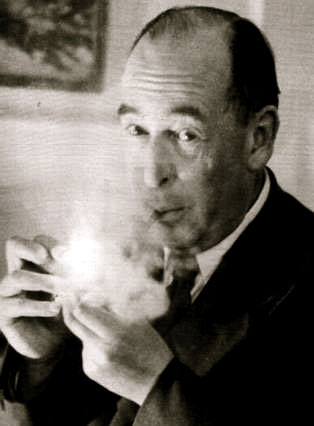
One of the most difficult of C. S. Lewis’s books to read—at least for me—was The Allegory of Love. He referred to so many works of literature with which I am unfamiliar (and written in an early English that was hard to translate) that I almost failed to finish it. Yet, even in so difficult a work, I discovered passages that I’m glad I didn’t miss.
At one point, in the midst of a long commentary on one of those unfamiliar works, Lewis offered this short “zinger,” if you will, that has application throughout the ages. He said simply,
The descent to hell is easy, and those who begin by worshipping power soon worship evil.
This speaks to me of the deception to which even Christians can fall into. Perhaps no better example is the temptation to power through politics. That’s not an indictment of Christians being involved in politics and government. I’ve spent my whole academic career attempting to show that our Christian witness needs to permeate every part of society, government included.
Yet there is that temptation of wanting a seat at the table so badly that we begin to look the other way when the power, once attained, gives way to evil. I don’t mean necessarily that Christians deliberately give themselves over to evil. It’s more often that we try to ignore the evil with which we may have become associated.
In Mere Christianity, Lewis warned, “Wickedness, when you examine it, turns out to be the pursuit of some good in the wrong way.” We want some societal good so urgently that we might be led astray into achieving that good by whatever means. But what if the means itself is evil?
Christians throughout the ages, once in power and sure of their righteousness, have attempted to force their views on others. Christians were persecuted in the Roman Empire, but once the empire became Christian (in outward display, at least), the tables were turned. Later, Catholics persecuted Protestants, Protestants retaliated against Catholics, and both put to death fellow believers who didn’t believe in quite the same way—the Anabaptists come to mind.

In Reflections on the Psalms, Lewis cautions those who feel the call of God on their lives, “If the Divine call does not make us better, it will make us very much worse. Of all bad men religious bad men are the worst.” He then offers this jolt: “Of all created beings the wickedest is one who originally stood in the immediate presence of God.”
We are called by God to be the image of Christ to a world devoid of that image. Yet that image is marred when we carry out the divine call in an unworthy manner. Humility and love for those who are lost must be the cornerstones of our involvement. Power can corrupt, and we must always be on the alert to prevent it from corrupting us.
Therefore, as the elect of God, holy and beloved, clothe yourselves with hearts of compassion, kindness, humility, gentleness, and patience.
Who is wise and understanding among you? Let him show it by his good conduct, by deeds done in the humility that comes from wisdom. . . . For where jealousy and selfish ambition exist, there will be disorder and every evil practice.
Colossians 3:12; James 3:13,16
